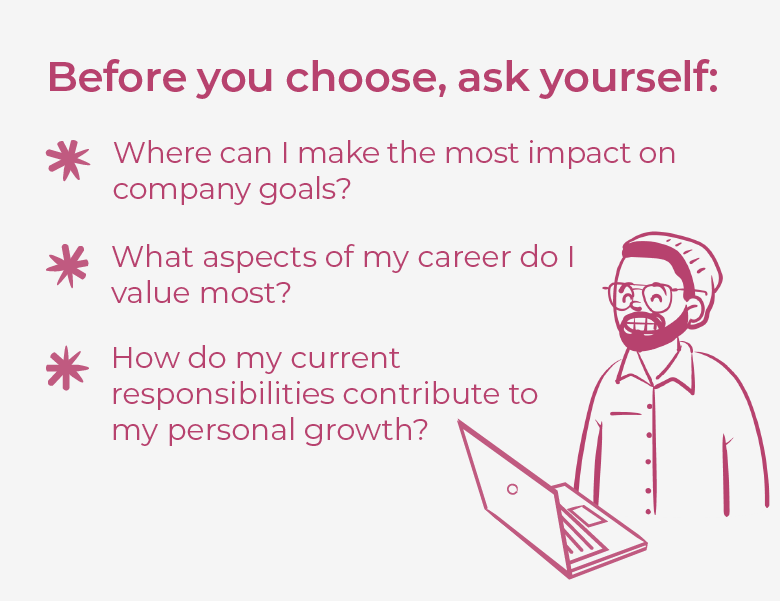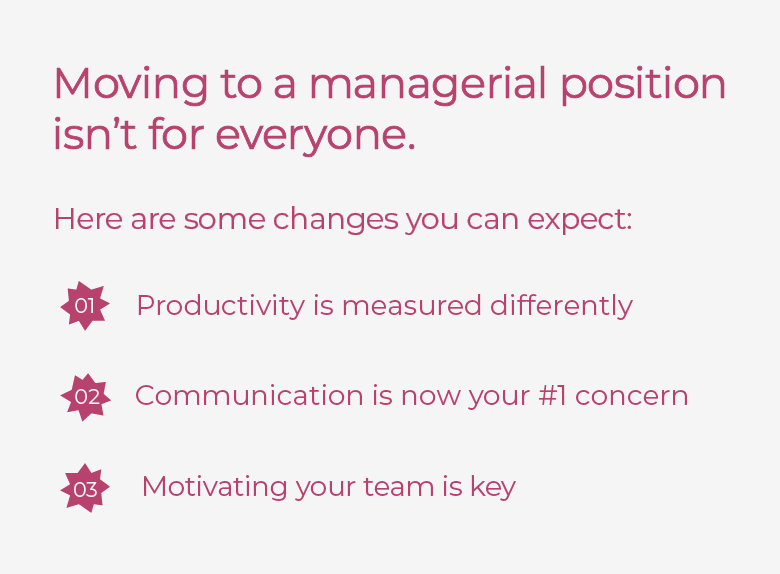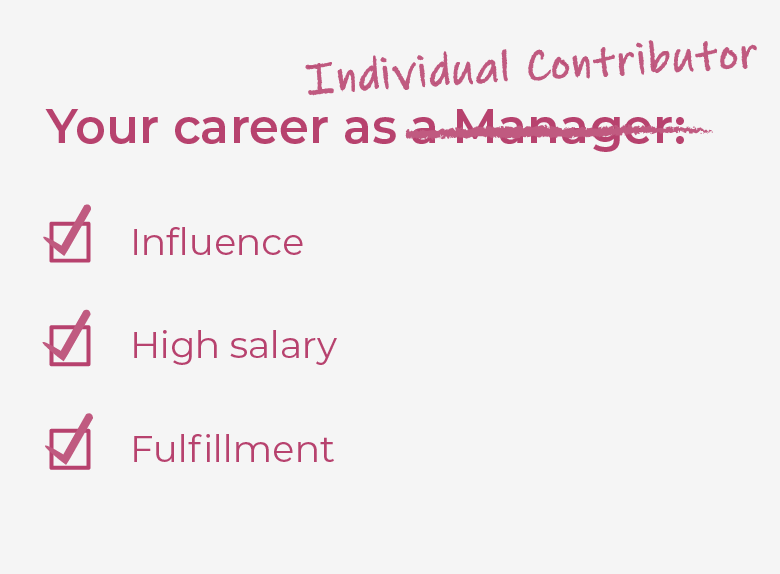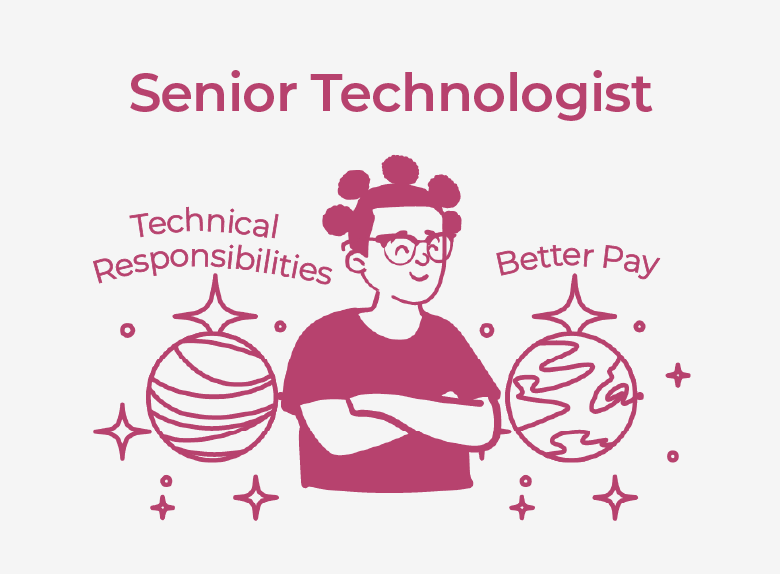Individual contributor vs. tech lead - which one's you?
The pros, cons, and special cases you should consider.
Traditional thinking says that holding a management role is a rite of passage for any self-actualized, mid-career professional. But is that really true now, in 2020?
As software applications grow more complex, demand is mounting for technical experts with 10+ years of experience as “doers”, accustomed to marshaling products from idea to deployment. Individual contributors might not move up the org chart once they hit senior level, but they can still command a high salary and expand their influence based on subject matter expertise rather than the job title.
So if veteran ICs are becoming more valued, why is 32 the average age for a software engineer?
Ageism is rife in the software industry, and even younger engineers often find their skills rendered obsolete as they struggle to keep up with the pace of innovation. Some older programmers slide into adjacent fields such as product management, systems integration, or sales engineering where programming experience is valuable, but it doesn’t matter as much what technology stack or programming language they’re fluent in. Others stay in individual contributor roles or become principal engineers or software architects.
Talented engineers at large enterprises are typically offered a choice between a technical track or a management track.
Before You Decide, Consider Your Values and Strengths

Where can you make the most impact on company goals?
Being a leader or influencer doesn’t require a formal management position. If you’re in a position to mentor junior developers, onboard new hires, and make direct or tangential recruiting decisions, you already heft some of the weight of a manager. The more valuable your day-to-day contributions, the more likely you’ll be called upon to weigh in on executive management decisions, even as an IC. As software engineers move up the ranks, they naturally spend less time coding and more time on software development plans - meaning you can still get promoted while continuing to be involved in day-to-day programming and software development.
What aspects of your career do you value most?
Perhaps you love the satisfaction of seeing your code productized, or developing new product features. Conversely, you may enjoy mentoring junior developers or communicating complex technical information to other teams. If your soft skills are your greatest strengths and you wish for greater responsibility, consider a managerial role. On the other hand, if you take more pride in laboring behind-the-scenes on back-end systems or front-end web development, you'll likely miss building things as a manager and may be unhappy in the long-term.
How do your current responsibilities contribute to your personal growth?
Ask yourself what you’re learning in your current role and if you feel inspired by your work. Many veteran software engineers love programming and have no management aspirations, even if their earning potential is capped. According to Indeed, 63% of software engineers believe they are paid enough for the cost of living in their city. Remember, ICs can still advance on a technical track by building domain expertise. The idea that people management is the only way up is an outdated notion. In fact, succeeding as a senior IC requires many of the same leadership and people skills as being a manager.
Transitioning From IC to Manager: What You Need to Know

Even as a tech lead, seniority confers people management responsibilities and detracts from software design and implementation -- which is not for everyone. For example, a software architect leads a team of developers and spends most of their time making strategic decisions regarding an organization’s technology stack. Coding is largely limited to fixing major QA issues.
If you’ve been programming for a while, it may be difficult to “zoom-out” from the code and view the software development function as a whole. As a manager, you decide what gets built and how; as an IC you design and implement software development plans that are handed down to you.
Here are some other changes to look out for to avoid undesirable surprises in your transition.
Productivity
As an IC, your productivity is gauged by what you create and the intrinsic value of your work, which is fairly objective and measurable. A manager’s success is judged by their ability to raise the performance of their team members -- something you can’t directly control. Leading by example, creating a positive work environment, and nurturing employee talents are markers of effective management, but they can be hard to prove. Get used to the idea that the technical skills you once relied upon are now secondary to your soft skills, including communication, organization, and process improvement.
Communication
Managers serve as the main liaison between their team and the rest of the organization, including executive management. Instead of simply vouching for your own achievements, your job is to represent the team’s good work and be answerable to higher-ups when projects don’t go according to plan. You are also responsible for communicating business requirements to your team and may even have profit-and-loss accountability.
Motivating your team
Your primary goal as a manager is to support your team to get things done while adhering to project timelines, budgets, and quality standards. Often, those three parameters will be determined by you. ICs flourish when they’re given autonomy, so you must train yourself to let go of technical responsibilities while making sure you’re available to mentor junior developers and provide technical expertise when needed.
Manager vs. Individual Contributor: Pros & Cons

Managers
Pros
- Are rewarded more for their leadership and organizational skills than ICs
- Tend to have more rapid advancement at the higher levels than equivalently paid ICs
- Don’t need to be technically strong to advance
- Have a broader influence on product and design
Cons
- Don’t have time to contribute technically to the product. Over time, their technical skills may atrophy from disuse
- Success is measured on your team’s performance, not your individual skills
- More trouble moving between divisions and companies because there are fewer manager roles than IC roles
Individual Contributors
Pros
- Workflow is more structured and productivity can be measured more easily
- At a senior level, you can be rewarded for mentoring, architectural skills, and influence without assuming the responsibilities of a manager
- You are directly involved in day-to-day design and implementation
Cons
- When you reach the higher pay grades, you need skills similar to a manager because of the impact you’re expected to make
- Upward mobility is limited. As an IC you are less likely to end up in executive management than if you chose a managerial track
There’s a Third Option: Senior Technologist

What if you could have the best of both worlds: increased technical responsibilities and pay without taking you away from the work you love? Senior technologists assume complete ownership of an organization’s technology platform and manage its tech roadmap in line with business needs. Essentially, their job is to use technology to propose and execute technology solutions to business problems.
They work directly with upper management, serving as both a technology and business expert, with the goal of continuously improving internal systems and processes to unlock greater efficiency for the business. However, this rare role is more common in smaller organizations. In a large enterprise, the role is similar to that of an IT director of a technology project manager. If the role doesn’t currently exist in your organization, you may be able to create your own!
The information provided herein is for general informational purposes only and is not intended to provide tax, legal, or investment advice and should not be construed as an offer to sell, a solicitation of an offer to buy, or a recommendation of any security by Candor, its employees and affiliates, or any third-party. Any expressions of opinion or assumptions are for illustrative purposes only and are subject to change without notice. Past performance is not a guarantee of future results and the opinions presented herein should not be viewed as an indicator of future performance. Investing in securities involves risk. Loss of principal is possible.
Third-party data has been obtained from sources we believe to be reliable; however, its accuracy, completeness, or reliability cannot be guaranteed. Candor does not receive compensation to promote or discuss any particular Company; however, Candor, its employees and affiliates, and/or its clients may hold positions in securities of the Companies discussed.
